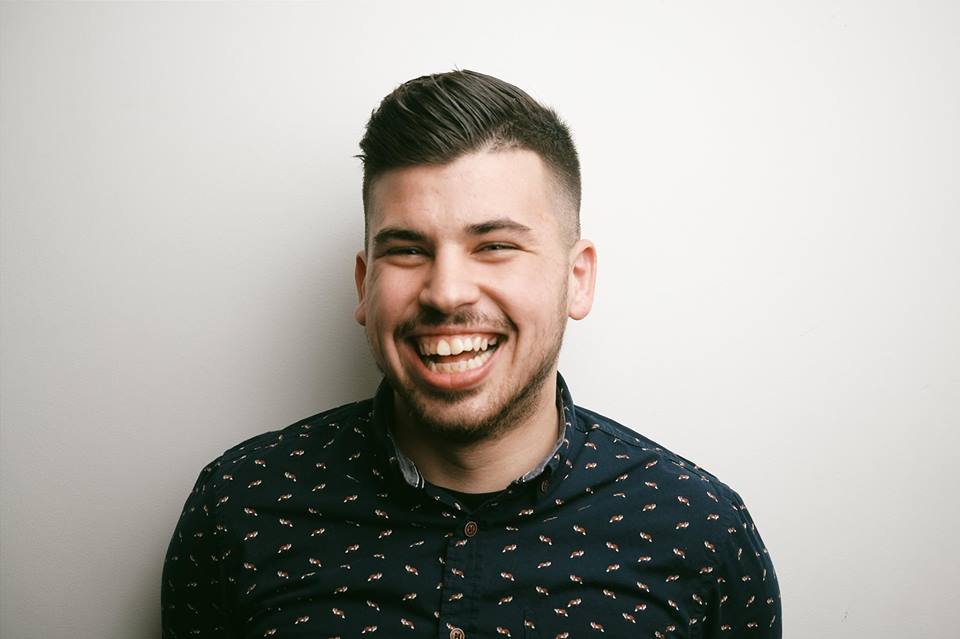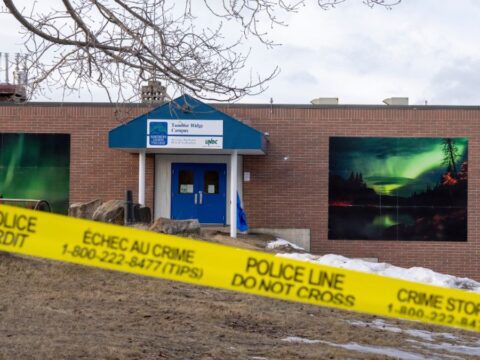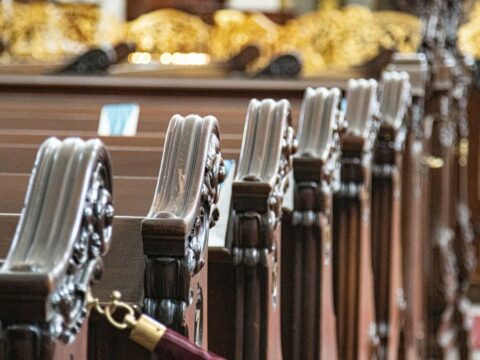I’m a natural skeptic. I grew up in a culturally Catholic family but became an atheist in my teenage years. My spiritual self was, and still is, divided in two parts that are at odds with each other. One is drawn to the socially progressive, free-form sects of society while the other longs for discipline, structures and routines. Because of this, I spent my early 20s leaping towards every spiritual group I could find.
Catholic masses had the structure and liturgy I desired, but their sermons often made me wince. Yoga studios had the open-mindedness I was seeking, but most people believed in so many different things that their ideas crumbled in the face of hard questions.
You may unsubscribe from any of our newsletters at any time.
I lived with this tension until I was invited to attend a gathering at a progressive church in downtown Hamilton, Ont., called Eucharist.
The Sunday service was full of young families, local baristas with full-sleeve tattoos, queer couples open about their sexuality and a pastor who wasn’t afraid to swear from the pulpit. This community promoted values that were essential to me and backed their beliefs with action. They were a group of young misfits and burned-out evangelicals who banded together to change the neighbourhood they met in. It seemed to me that they loved with no hidden motivations or agenda.
My experiences growing up made church feel like a place where you politely agreed not to ask questions or challenge your beliefs. But Eucharist was a place where my skepticism was nurtured. Everyone was called to challenge their beliefs and no one pretended to have all the answers. It was the first place where I felt able to let my guard down.
My experiences growing up made church feel like a place where you politely agreed not to ask questions or challenge your beliefs.
The height of my relief came when the church held a baby dedication for a lesbian couple. The young families and eccentric folks who made up Eucharist stood together and committed themselves to helping raise this child like family. No caveats or explanations. Just genuine commitment.
This display of radical love seemed too good to be true and surely enough, I was blindsided by my greatest fear of being a part of a Christian church. A member of the congregation who came from a more traditional background told me he didn’t biblically agree with what had happened during the dedication.
I was crushed—his words sounded so much like the thoughtless cultural Christianity that I had attempted to escape.
Later that day, I talked about our exchange with a group of friends from church and ranted about how people who think that way should be banned from our progressive little community.
I expected to be lauded for my progressive views but instead, one by one, my friends detailed their journeys in developing more accepting perspectives while coming from traditional backgrounds.
They explained how hard it was, how long it took and the things they lost along the way. One openly gay friend of mine explained that just three years ago, he would have left a church that openly supported LGBTQ couples because he hadn’t been able to be honest about his own sexuality.
But these people also shared the positive parts of their upbringings—how they wouldn’t have had the model to start the church I’d come to love so deeply had they not grown up under more traditional perspectives.
Turns out this safe and progressive space didn’t just happen naturally. It was something developed over a long period of time during which people met and placed themselves in uncomfortable situations, and asked questions in order to grow and learn.
I realized the home I had been searching for was not a place that matches perfectly with what I believe. The home I had been searching for was a place where I could wrestle, question and love exactly where the tension is.
The place I need to be is right where the odds meet.














